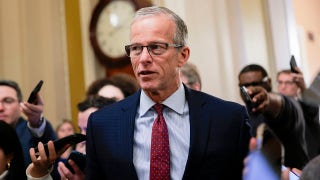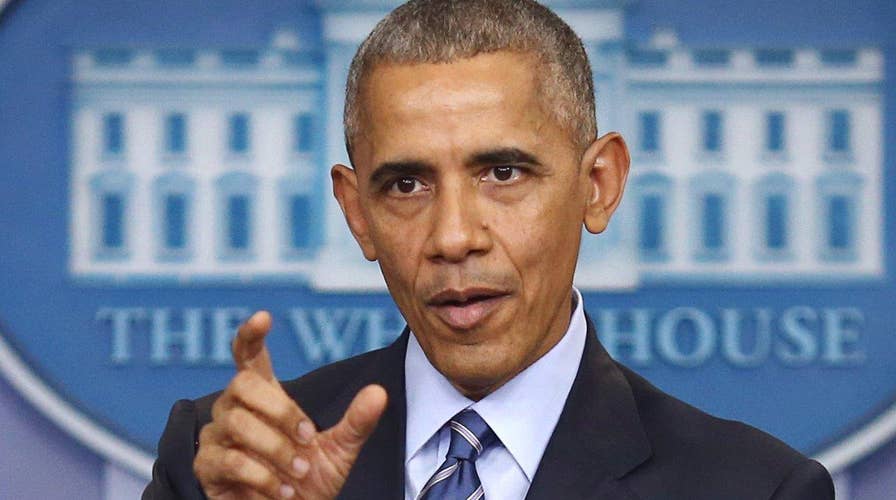President Obama makes final push on top agenda items
Insight from Julie Bykowicz, national political reporter for the Associated Press
The Obama administration announced Thursday it is formally scrapping a once-mandatory registry for immigrant men from predominantly Muslim countries, amid speculation over whether the incoming Donald Trump administration may try to renew it.
The U.S. already had stopped using the program in 2011.
The original National Security Entry-Exit Registration System, or NSEERs, launched about a year after 9/11, requiring men and boys from a variety of mostly Middle Eastern countries to register with the federal government upon their arrival in the U.S. Registration, which also applied to immigrants from North Korea, included fingerprints and photographs and a requirement to notify the government of any address changes.
But after the Obama administration suspended the program in 2011, the Department of Homeland Security put out a notice Thursday officially removing what it called “outdated regulations” pertaining to the “obsolete” system.
The notice stated:
“DHS ceased use of the National Security Entry-Exit Registration System (NSEERS) program in 2011 after finding that the program was redundant, captured data manually that was already captured through automated systems, and no longer provided an increase in security in light of DHS’s evolving assessment of the threat posed to the United States by international terrorism. The regulatory structure pertaining to NSEERS no longer provides a discernable public benefit as the program has been rendered obsolete. Accordingly, DHS is removing the special registration program regulations.”
The notice, though, comes amid growing international terror fears and Trump's suggestions that he could ban some Muslim immigrants from the United States. After a truck attack killed 12 in a Christmas market in Berlin this week, Trump told reporters, "You know my plans."
While the registration program had been widely derided by civil libertarians as an effort to profile people based on race and religion, the international terror threat led to multiple calls for tougher policies during the Republican presidential primary race. Trump in particular made a far-reaching and controversial call to temporarily ban Muslim immigrants from coming to the U.S., though he later shifted to focus on temporarily halting immigration from an unspecified list of countries with ties to terrorism.
He also seemed, during the campaign, to open the door to a Muslim registry before backing off that idea to focus more on refugees.
However, Kansas Secretary of State Kris Kobach, a Trump immigration adviser during the campaign, said last month that Trump should renew the DHS database.
Meeting with Trump in New York, Kobach carried a document labeled "Department of Homeland Security Kobach Strategic Plan for First 365 Days." It listed an NSEERS reboot as the top priority. The document was visible in a photograph by The Associated Press.
The list suggested the U.S. government "update and reintroduce" the program for all foreigners from "high-risk" areas.
The president-elect, when asked Wednesday if the attack in Berlin would cause him to evaluate the proposed ban or a possible registry of Muslims in the United States, said "You know my plans. All along, I've been proven to be right, 100 percent correct."
Trump spokesman Jason Miller said the president-elect's plans "might upset those with their heads stuck in the politically correct sand." He added that Trump has been firm on a plan to suspend admission to the U.S. for people "from countries with high terrorism rates" and subject some others to strict vetting.
When the Obama administration abandoned the DHS system in April 2011, it said a newer data collection program would be sufficient to collect biometric information for all foreigners coming into the country. At the time, more than 80,000 foreigners were registered.
The Associated Press contributed to this report.













































